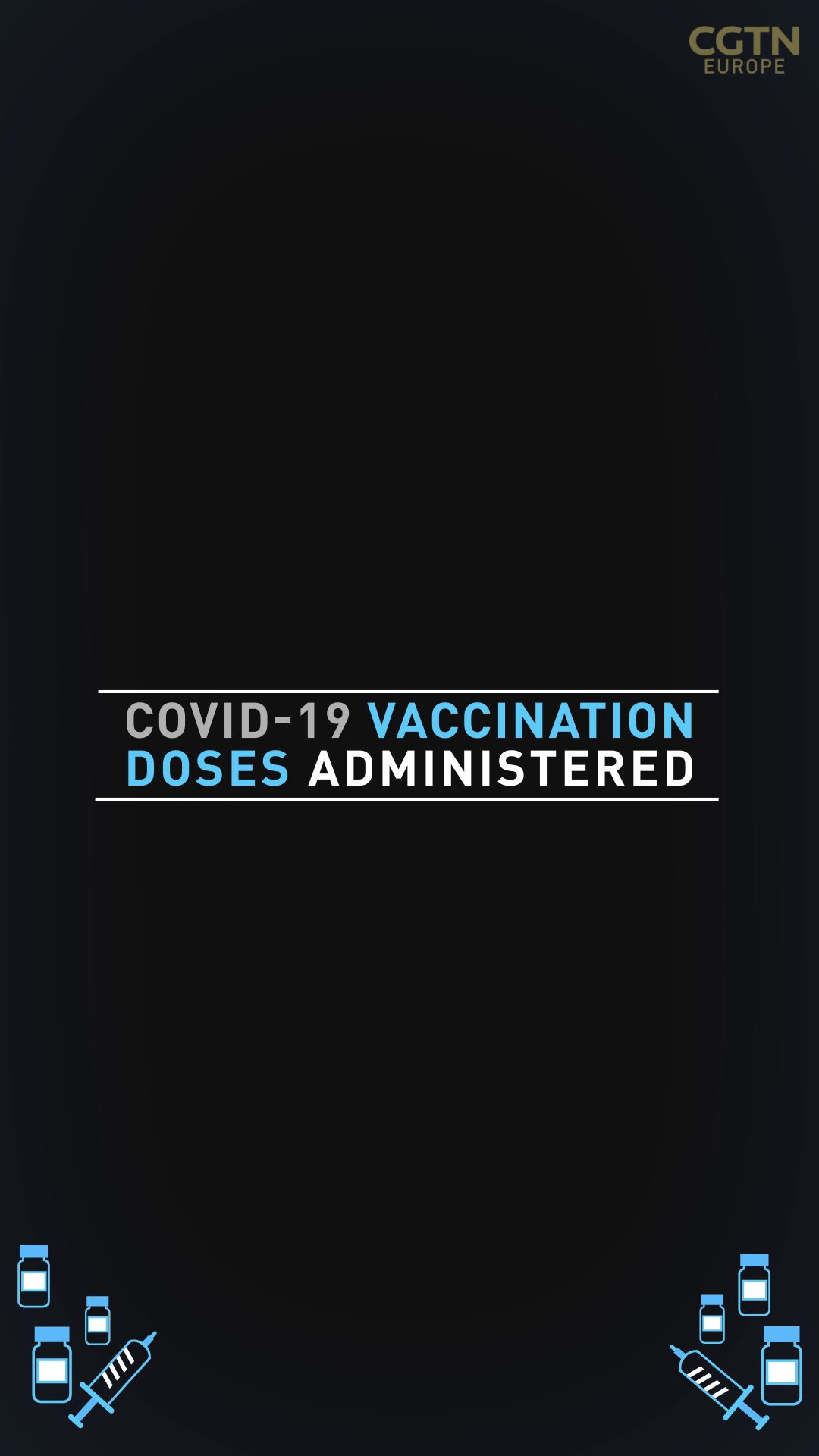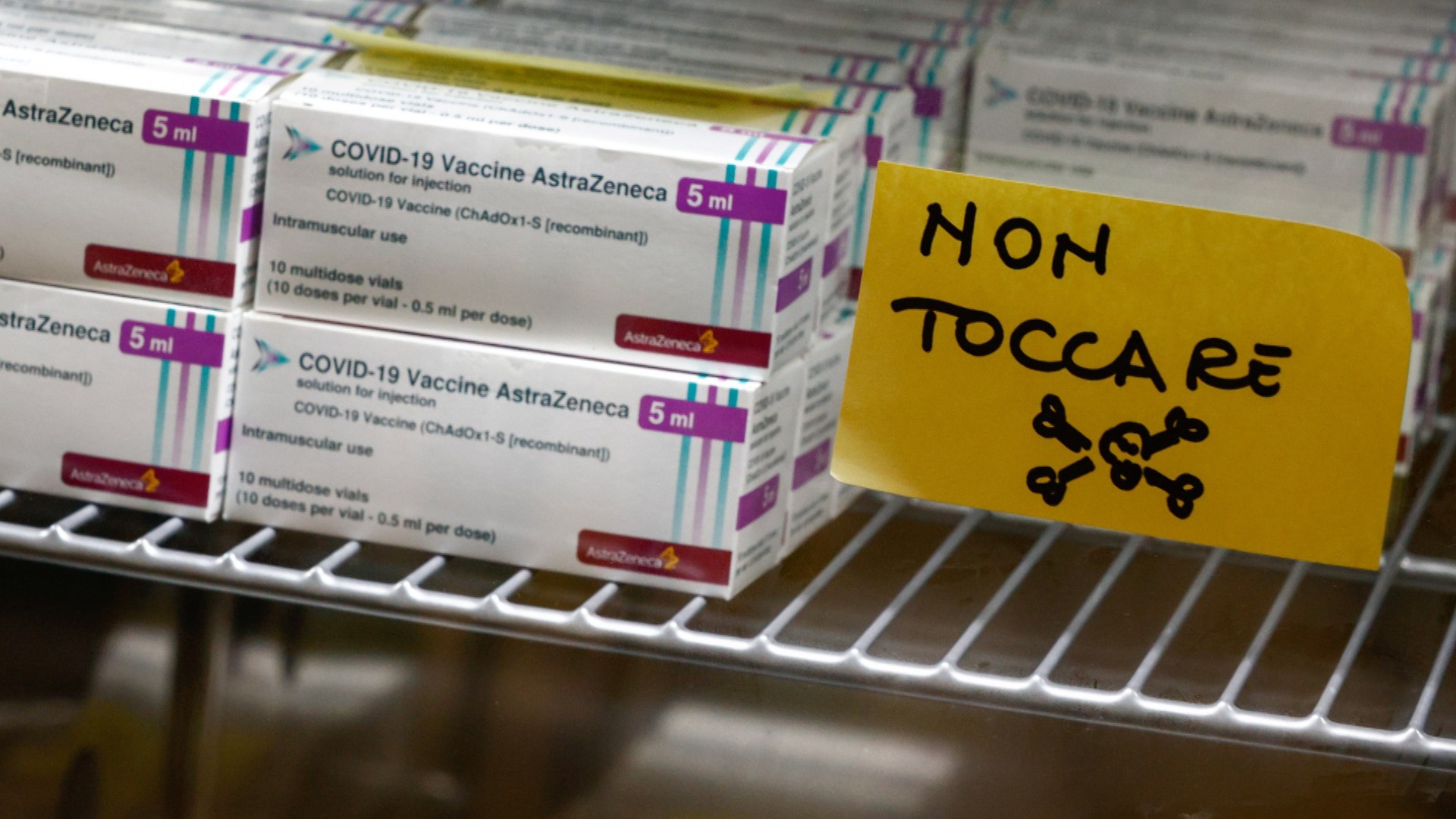TOP HEADLINES
- Moldova has become the first country in Europe to receive vaccines from the global COVAX fund. The first batch of 14,400 doses arrived in the country on Thursday evening, President Maia Sandu said.
- France's Health Minister Olivier Veran has said it could block vaccine shipments abroad, after Italy refused export permission for a shipment of AstraZeneca jabs headed to Australia on the grounds that the manufacturer has failed to meet its EU contract commitments. Meanwhile, Germany has said it has not yet had any reason to stop any vaccine shipments.
- Switzerland has unveiled a $1.07 billion plan to offer free tests to its entire population as it seeks to slow the spread of the virus and in turn ease its nationwide restrictions.
- Czechia has asked fellow EU countries Germany, Switzerland and Poland to take in dozens of its virus patients as its healthcare system struggles to cope with a surge in new infections. "The large number of newly infected patients has intensified pressure on the healthcare system and the number of patients requiring hospitalization is growing," Prague's Health Ministry said.
- Italy has registered more deaths in 2020 than in any other year since World War II, according to statistics bureau ISTAT, which suggested the virus caused thousands more fatalities than were officially attributed to it. The study says fatalities in Italy last year amounted to 746,146, an increase of 15.6 percent compared with the average between 2015 and 2019.
- Europe's drug regulator, the European Medicines Agency has said an antibody drug combination developed by U.S. firm Eli Lilly can be used to treat COVID-19 patients who do not require oxygen support and are at high risk of progressing to severe illness.
- France will no longer require proof of a negative test from hauliers traveling directly from Ireland amid very low positive test rates among commercial vehicle drivers.
- The variant first discovered in the UK now accounts for 25 percent of new cases in Poland, Health Minister Adam Niedzielski has said.
- Spain plans to ban travel between different regions for the week leading up to Easter Sunday (April 4) in a bid to slow the spread of the virus. Health Secretary Silvia Calzon added that the measures were needed to overcome "an absolutely critical moment."
- The Spanish government has also banned marches to celebrate International Women's Day in Madrid on March 8. "The problem is the size of the crowds that would build up in a few hours and in a few places," the central government's chief representative to the capital, Jose Manuel Franco, has said.
00:20

ACROSS EUROPE
Andrew Wilson in the UK
Sixteen cases of a new COVID-19 variant are said to have been identified by Public Health England. The mutation which, like others, contains the E484K mutation has been classified as a 'Variant Under Investigation.'
According to official records, the first UK COVID-19 patient to succumb to the disease died on March 5 2020. Since then, however, there have been fatal cases of suspected COVID-19 dating back to January 2020.
The holiday island of Cyprus says from May 1 it will open its borders to Britons who have had both vaccine doses, offering a sign of how the summer holiday season may progress in the Mediterranean.
READ MORE:
The latest EU-UK dispute explained
Who bought Italy's one-euro homes?
China's Two Sessions at a glance
Ryan Thompson in Frankfurt
Germany's coronavirus infection rate is rising again, in line with WHO warnings that Europe may be facing another spike in cases.
The Robert Koch Institute reported the nation's seven-day incidence rate at 65.4 on Friday morning, up from 64.7 on Thursday. The value indicates how many people per 100,000 inhabitants have contracted the coronavirus in the past seven days.
Leaders had warned that restrictions would only be lifted if this figure fell below 50, however Germany's premiers are moving ahead with easing measures in different regions since Wednesday's cabinet meeting.
Chancellor Angela Merkel said the loosening of restrictions was justified because of the imminent ramp-up in vaccinations and the arrival of mass rapid testing.
Rahul Pathak in Madrid
Spain has banned any marches to mark International Women's Day on March 8 for fear they could become "super spreader" events.
This time last year, the Women's Day parade through Madrid was thought to be one of the main causes of the first wave of infections that swept through the capital last year.
The decision by the Spanish government was taken after 104 requests for demonstrations for March 7 and March 8, which would have brought at least 60,000 people onto the city's streets.
WATCH BELOW: Italy blocks AstraZeneca vaccine shipment heading for Australia
02:16

Julia Chapman in Budapest
Hungary's Prime Minister Viktor Orban says his government had no choice but to tighten restrictions to curb the spread of COVID-19.
Without them, he said, epidemiologists warned the country would be facing tragedy. The new measures will come into effect on Monday, with non-essential shops, primary schools and gyms to close. It comes after a spike in infections across Central Europe, a region the WHO says is driving a rise in cases across the continent.
Orban said wage subsidies would be extended for everyone affected by the new closures. He also explained Hungary's new approach to vaccination, aiming to give a first dose to all those who have registered by April 11, following the UK's method of delaying the second dose. Orban said this strategy was necessary because of the "third wave" the country is facing.
Ross Cullen in Paris
A third national lockdown is not "impossible," according to the France's Prime Minister Jean Castex, as the government once again ruled out another nationwide confinement – for the moment.
France's government imposed a weekend lockdown in the northern region of Pas-de-Calais. The southern city of Nice and the northern port of Dunkirk are already under the measure of Saturday-Sunday lockdowns, due to localized escalations of COVID-19 cases.
During his weekly COVID-19 news conference, Castex said: "The circulation of the virus has accelerated in the last two weeks." Castex revealed the variant first identified in the UK now accounts for "60 percent plus of cases" and admitted there is "strong pressure" on hospitals, where admissions to intensive care units are rising.
The prime minister conceded that "only one in three health workers is vaccinated. That's not normal. It compromises our ability to fight the virus efficiently." To try to rectify this, the health secretary said he will write to all health workers on March 5 to encourage them "strongly" to get vaccinated. By the middle of April, the government says it aims to have given everyone aged between 50 and 74 their first jab.
Stefan de Vries in Amsterdam
For the first time since September last year, the number of deaths is lower than expected for this time of year. This may be because more and more people have been vaccinated against COVID-19. However, there is no hard evidence for this yet, Statistics Netherlands (CBS) reported on Friday.
At least 10 people are thought to have been infected in the southern province of Limburg with a new coronavirus strain first discovered in Mexico.
On Thursday, there were 4,161 new positive COVID-19 tests. Less than the average of 4,532 cases per day over the past seven days. The number of virus patients in Dutch hospitals has again decreased slightly compared with the previous day.

Moldova has become the first country in Europe to receive vaccines from the global COVAX fund, President Maia Sandu has confirmed. /Reuters
Moldova has become the first country in Europe to receive vaccines from the global COVAX fund, President Maia Sandu has confirmed. /Reuters
FROM OUR GLOBAL COLLEAGUES
CGTN Europe: The Answers Project – Will soldiers become obsolete?
CGTN China: China sets GDP growth rate at over 6 percent for 2021
CGTN America: Girl finds quarantined parents dead at home on the U.S.
CGTN Africa: Rwanda transports COVID-19 vaccines to remote areas
Sign up here to get the COVID-19 Europe bulletin sent directly to your inbox.
CGTN Europe has been providing in-depth coverage of the novel coronavirus story as it has unfolded. Here you can read the essential information about the crisis.

